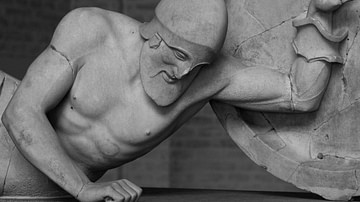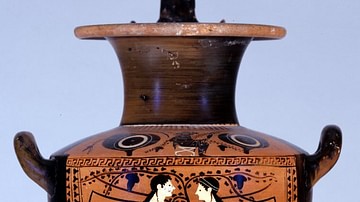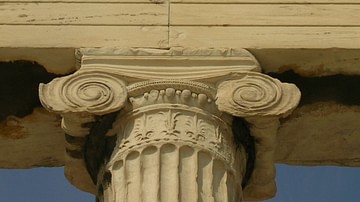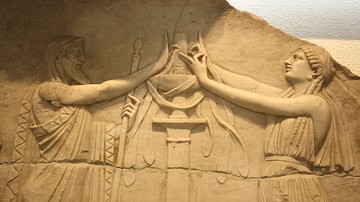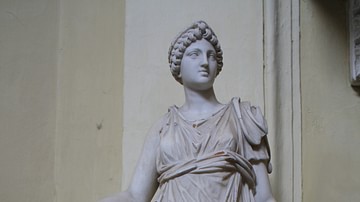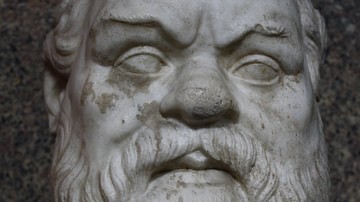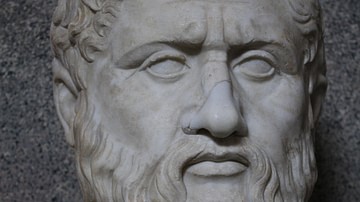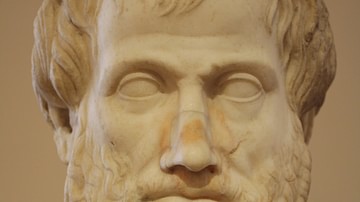The ancient Greeks were masters at picking up ideas from other cultures, mixing these with their own innovations and producing unique contributions to world culture. Greek sculptors adored the human form, painters loved to tell stories on Greek pottery, and the Greek architectural orders can still be seen around the world today in all sorts of buildings. With fine Mediterranean weather, the Greeks were an outdoor people and it is then, perhaps no coincidence that they developed open-air theatre, political meetings and philosophical discussions.
In this collection, we examine the major aspects of the culture and thinking of the ancient Greeks, from temple architecture to how to live a good life. We also consider aspects of their religion - another outdoor activity - their diet, medicine and music.
A Greek comedy play followed a conventional structure. The first part was the parados where the Chorus of as many as 24 performers entered and performed a number of song and dance routines. Dressed to impress, their outlandish costumes could represent anything from giant bees with huge stingers to knights riding another man in imitation of a horse or even a variety of kitchen utensils. In many cases the play was actually named after the Chorus, e.g., Aristophanes' The Wasps.
